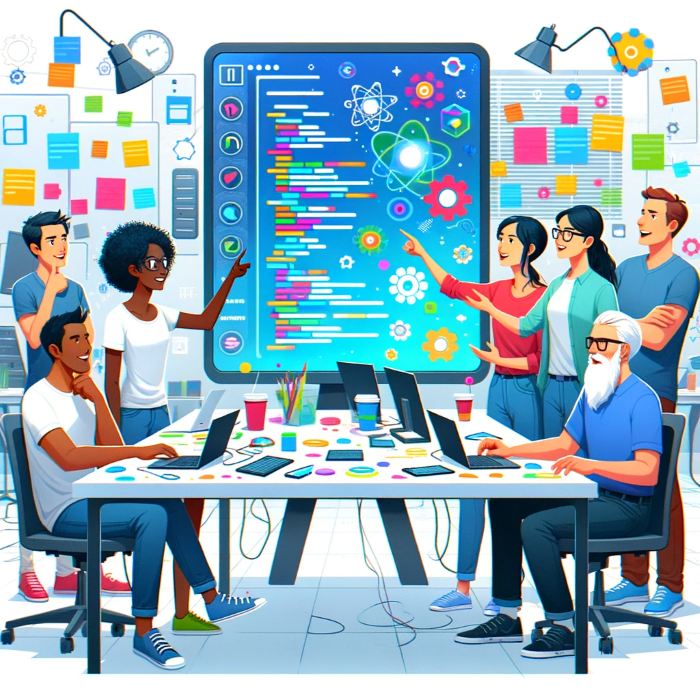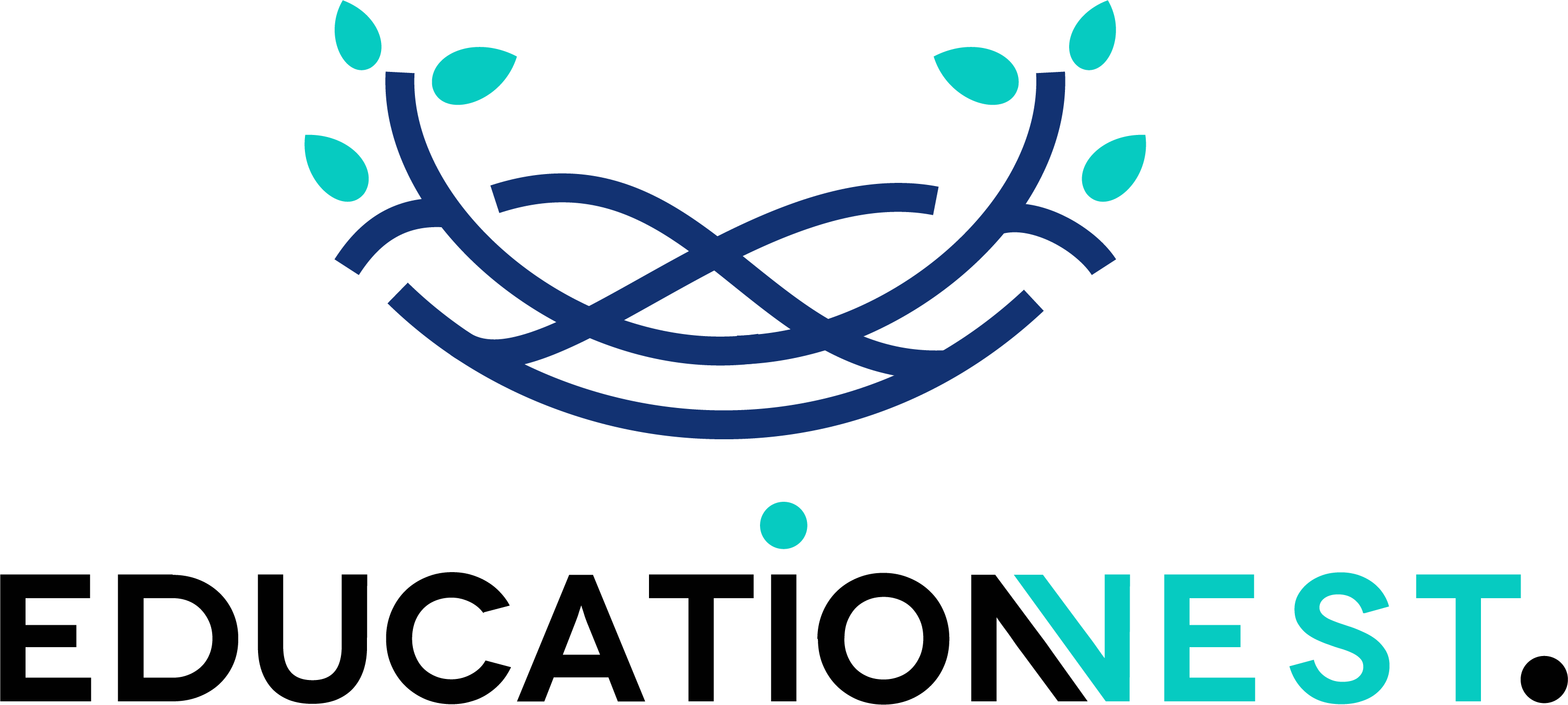
Are you dreaming of becoming a software developer? In today’s digital world, it’s an exciting and rewarding career choice. But what does a software developer do? How lucrative is a software developer salary? What should you study to become a software developer? If these questions are on your mind, especially if you’re pondering how to become a software engineer after 12th, you’re in the right place. This blog will guide you through the journey of becoming a software developer in 2024, breaking down each step in simple, easy-to-understand language. So, let’s get started on this exciting path!
Who is a Software Developer?
A software developer is like a skilled craftsman in the digital world. They are the creative brains behind computer programs, applications, and systems that run on computers, smartphones, and other devices. Imagine them as architects and builders, but instead of constructing buildings, they build software.
Their work involves more than just writing code. They design the blueprint for the software, making sure it’s user-friendly and meets the needs of those who will use it. They also test and fix any problems (or ‘bugs’) to ensure the software runs smoothly. Once the software is up and running, they might update it with new features or fix any issues that pop up over time.
Software developers are problem-solvers and innovators, always thinking of new ways to make technology work better for us. They work in various fields, from creating video games to developing apps that help businesses operate more efficiently. In short, they’re the magicians who turn ideas into reality in the tech world.
How to Become a Software Developer?

Becoming a software developer is like embarking on a thrilling journey into the heart of the digital age. It’s a path that demands dedication, curiosity, and a passion for problem-solving. Here’s a roadmap to help you navigate this exciting terrain:
Start with Education:
A formal degree in Computer Science or a related field is a common starting point. These programs provide a strong foundation in programming, algorithms, and systems design. However, if college isn’t an option, don’t worry! The tech world values skills, and there are plenty of other routes.
Self-Learning and Online Courses:
The internet is a treasure trove of learning resources. Platforms like Coursera, Udemy, and freeCodeCamp offer courses in various programming languages and aspects of software development. Start with one language, like Python or Java, and build a solid understanding.
Hands-On Practice:
Theory is important, but nothing beats practical experience. Work on personal projects, contribute to open-source software, or create useful applications. This hands-on experience is invaluable and will significantly enhance your skills.
Understand Software Development Tools:
Familiarize yourself with essential tools like version control systems (like Git), text editors, and integrated development environments (IDEs). These tools are part of a developer’s everyday life.
Build a Portfolio:
Showcase your projects and code on platforms like GitHub. A strong portfolio can sometimes speak louder than a resume, especially for entry-level positions.
Internships and Networking:
Internships provide real-world experience and a foot in the door of the industry. Networking, both online and offline, can lead to valuable connections and job opportunities.
Stay Curious and Keep Learning:
The tech field is always evolving. Stay updated with the latest trends, technologies, and advancements in software development.
Remember, there’s no single path to becoming a software developer. It’s a journey of continuous learning, where perseverance, passion, and the drive to create and solve problems pave the way to success. So, gear up, dive in, and start coding your way to an exciting and fulfilling career!
What Does a Software Developer Do?

A software developer is like a wizard of the digital world, turning lines of code into functional and innovative software applications. Their work is a blend of creative design, technical coding, and problem-solving. Here’s a peek into the diverse and dynamic roles they play:
- Designing Software: Developers start by understanding what a software application needs to do, its users, and the problems it aims to solve. They then design the program’s structure, creating a blueprint that guides the entire development process.
- Writing and Testing Code: Using programming languages like Java, Python, or C++, they write the code that brings the software to life. This involves not just coding, but also rigorous testing to find and fix any bugs, ensuring the software runs smoothly and efficiently.
- Collaboration and Communication: Software development is often a team effort. Developers work closely with other programmers, as well as with non-technical team members like designers and project managers, to ensure the software meets user needs and stays on schedule.
- Maintenance and Updates: A developer’s job doesn’t end with the launch of the software. They regularly update it, adding new features and fixing bugs to ensure it remains relevant and efficient.
- Problem-Solving: At the heart of a developer’s role is problem-solving. Whether it’s finding a more efficient algorithm, debugging an issue, or creating a user-friendly interface, they are constantly tackling challenges.
- Continuous Learning: Technology evolves rapidly, and so must a software developer. They continuously learn new languages, frameworks, and tools to stay ahead in the field.
In essence, a software developer is a creator, a collaborator, a lifelong learner, and a problem solver. They play a crucial role in shaping the technology that powers our world, from mobile apps to enterprise software.
What to Study to Become a Software Developer?
Embarking on the journey to become a software developer is exciting and involves exploring a variety of educational paths. Here’s a brief guide:
Computer Science Degree: A traditional route is a bachelor’s degree in computer science. This provides a comprehensive foundation, covering programming languages, algorithms, data structures, and computer systems.
Specialized Courses: Focus on courses that teach programming (like Python, Java, C++), web development, mobile app development, and database management. These are crucial skills for a software developer.
Practical Experience: Engage in hands-on projects. Coding your own apps or contributing to open-source projects can be as valuable as formal education.
Online Learning: Platforms like Education Nest offer courses in various aspects of software development. These are great for learning specific skills or updating your knowledge.
Soft Skills: Don’t overlook soft skills like problem-solving, teamwork, and effective communication, which are essential for a successful career in software development.
In summary, becoming a software developer is a mix of formal education, practical experience, and continuous learning. Tailor your educational path to your interests and career goals, and keep adapting as technology evolves.
Also Read:
Software Engineer Salary Range: The Latest Stats
How to Become a Software Engineer After 12th

Embarking on a career as a software engineer right after completing your 12th grade can be a rewarding and exciting path. The journey begins with choosing the right educational stream. Opt for a Bachelor’s degree in Computer Science, Information Technology, or Software Engineering. These programs are specifically designed to provide the foundational knowledge and technical skills essential for a career in software development.
During your undergraduate studies, focus on gaining a solid understanding of core subjects such as programming languages, database management, algorithms, and computer networks. This theoretical knowledge is crucial, but equally important is practical experience. Engage in coding projects, participate in coding bootcamps, contribute to open-source projects, or develop your own software applications. This hands-on experience will not only enhance your coding skills but also give you a real-world perspective on the challenges and demands of a software engineering role.
Additionally, internships play a vital role in your journey. They offer a glimpse into the professional world of software engineering, providing valuable experience and networking opportunities. Internships can often lead to job offers or at least give you a significant edge in the job market after graduation.
In essence, becoming a software engineer after the 12th is a blend of formal education, practical experience, and proactive learning. It’s a path that demands dedication and passion for technology, opening doors to a world of innovative possibilities and career opportunities.
Software Developer Salary
The salary of a software developer can vary widely depending on the country and their level of experience. Let’s break it down in simple terms:
United States: In the U.S., junior software developers can earn around $60,000 to $100,000 per year, while senior developers might make between $100,000 and $150,000. India: In India, entry-level developers typically earn about ₹300,000 to ₹500,000 annually. Experienced seniors can make upwards of ₹1,000,000. United Kingdom: In the U.K., beginners usually start at around £25,000 to £35,000 per year, and seniors can earn £50,000 to £70,000. Canada: Canadian software developers at the entry-level make about CAD 50,000 to CAD 70,000, and seniors can earn CAD 80,000 to CAD 120,000.
Remember, these are just rough figures. Salaries can change based on the company, your skills, and the specific area of software development you’re in. But overall, software development is known for offering good salaries across the globe.
Conclusion
Becoming a software developer in 2024 is a journey of continuous learning and adaptability. It’s not just about coding skills; it’s about solving problems, thinking creatively, and being able to adapt to new technologies. Whether you choose a traditional university degree, a coding boot camp, or self-teaching, the key is to stay curious, keep learning, and gain as much practical experience as possible. The world of software development is vast and exciting, and there’s a place in it for everyone who has the passion and perseverance to explore it. Happy coding!

